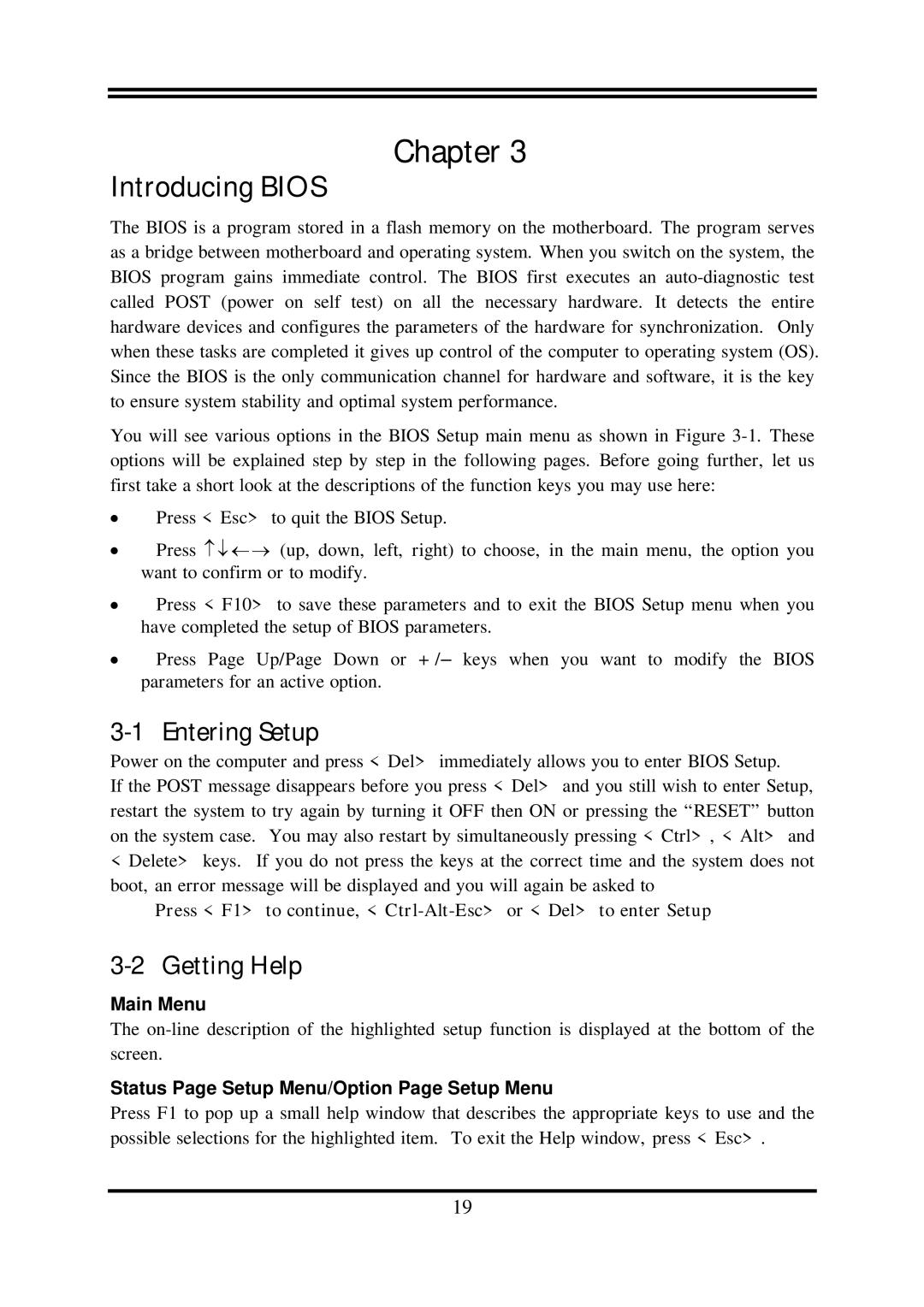
Chapter 3
Introducing BIOS
The BIOS is a program stored in a flash memory on the motherboard. The program serves as a bridge between motherboard and operating system. When you switch on the system, the BIOS program gains immediate control. The BIOS first executes an
You will see various options in the BIOS Setup main menu as shown in Figure
•Press <Esc> to quit the BIOS Setup.
•Press ↑ ↓ ← → (up, down, left, right) to choose, in the main menu, the option you want to confirm or to modify.
•Press <F10> to save these parameters and to exit the BIOS Setup menu when you have completed the setup of BIOS parameters.
•Press Page Up/Page Down or +/– keys when you want to modify the BIOS parameters for an active option.
3-1 Entering Setup
Power on the computer and press <Del> immediately allows you to enter BIOS Setup.
If the POST message disappears before you press <Del> and you still wish to enter Setup, restart the system to try again by turning it OFF then ON or pressing the “RESET” button on the system case. You may also restart by simultaneously pressing <Ctrl>, <Alt> and <Delete> keys. If you do not press the keys at the correct time and the system does not boot, an error message will be displayed and you will again be asked to
Press <F1> to continue, <Ctrl-Alt-Esc> or <Del> to enter Setup
3-2 Getting Help
Main Menu
The
Status Page Setup Menu/Option Page Setup Menu
Press F1 to pop up a small help window that describes the appropriate keys to use and the possible selections for the highlighted item. To exit the Help window, press <Esc>.
19
